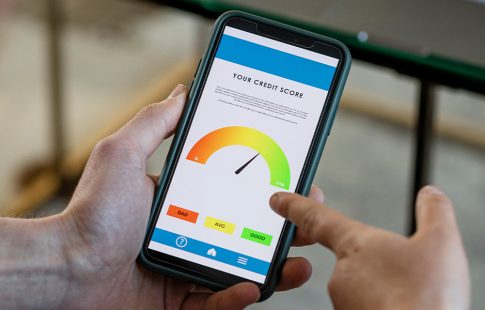Estimated reading time: 3 minutes
What’s the big fuss about credit scores? Well, when you’re looking for financing for a new home, credit is one of the most important factors for lenders to evaluate before they decide whether to lend you money for a home. A mortgage lender will check your credit history, and what they find will have a substantial impact on your options for a home loan.
Your credit score won’t tell lenders everything about you, but it can show two key things that might impact your chances for getting a home loan:
- First, lending money is not without risk, and your credit rating tells mortgage companies how reliable or unreliable you are at repaying loans.
- Second, your credit score has a big impact on what sort of loan terms you are likely to get. Better credit could improve your chances for getting the home loan. Your credit score can also impact the interest rate will be on your mortgage.
1. How Your Credit Score is Determined
Banks and lending institutions often use credit scores to determine how likely you are to default on your loan. The higher your credit score, the better credit risk you are — which is why “excellent” or “good” credit is preferable to “poor” credit.
Several areas of your credit history are considered when determining your credit score. These categories are your payment history, which is about 35% of your score; the total amount you owe, about 30%; how long you’ve had credit, about 15%; how much new credit you’ve applied for, 10%; and the type of credit used, about 10%.
2. A low credit score could disqualify you from a mortgage
So what’s considered a good credit score? Generally:
740 and above is considered “excellent”
700 is “good”
680 is “average,” and
620 is usually the minimum to qualify for a conventional mortgage loan.
If you’re a homebuyer with less-than-stellar credit, don’t be discouraged. Lenders look at many factors when deciding whether you qualify for a mortgage. Among other things, lenders want to see if you have steady employment and income history, a sufficient down payment, and low debt. Another key factor is whether you can really afford the loan for the home you want to purchase; if your finances won’t support your payments, a lender could turn you down.
3. A higher credit score might mean a lower interest rate
Homebuyers don’t always realize the relationship between interest rates and their credit score, but your credit score can have a big impact on the interest rate attached to your mortgage. The difference of even a few interest rate points could add up over the life of a 30-year mortgage, so check out our mortgage payment calculator to see for yourself what a difference just a few points might make in the amount you’ll pay over the life of your home loan.
4. You can improve your credit score with some work
If you need a mortgage now or sometime in the future, it’s a good idea to start planning ahead and improving your credit score. Is your credit history a little spotty? There are a few steps you could take to improve your credit. Remember that it might take some time for your new habits to be reflected in your actual score (but that might mean you’ll want to get started now):
- Pay all of your bills on time — credit cards, car loans, student loans, utilities, and even your rent
- Try not to spend more than 30% of your limit on your credit cards (for example, if your card’s limit is $5,000, don’t spend more than $1,500)
- Pay off your high-interest, high-balance credit cards first
- Don’t cancel your credit cards, even after paying off everything you owe on them (it can improve your credit score to keep zero-balance, active lines of credit open)






